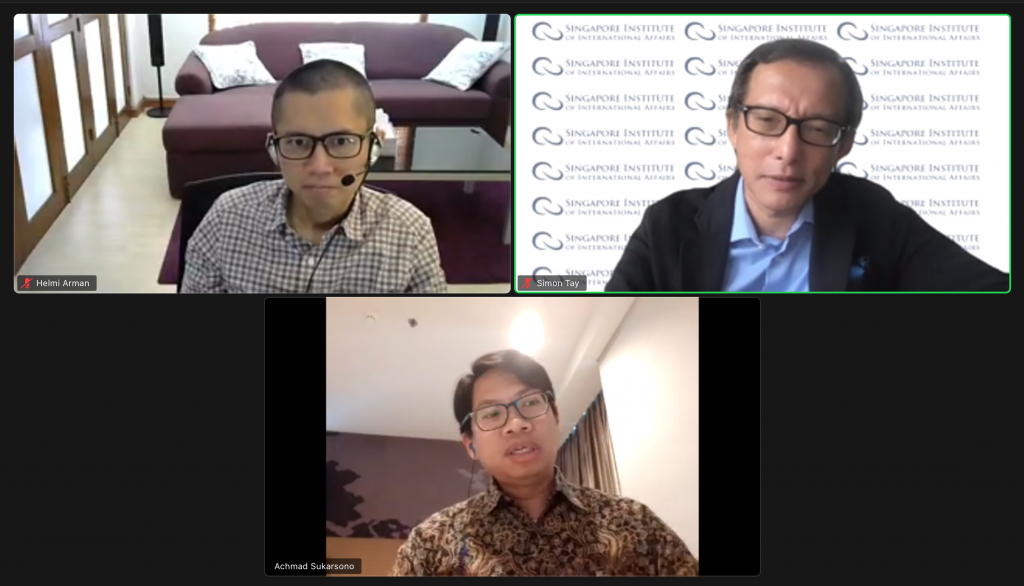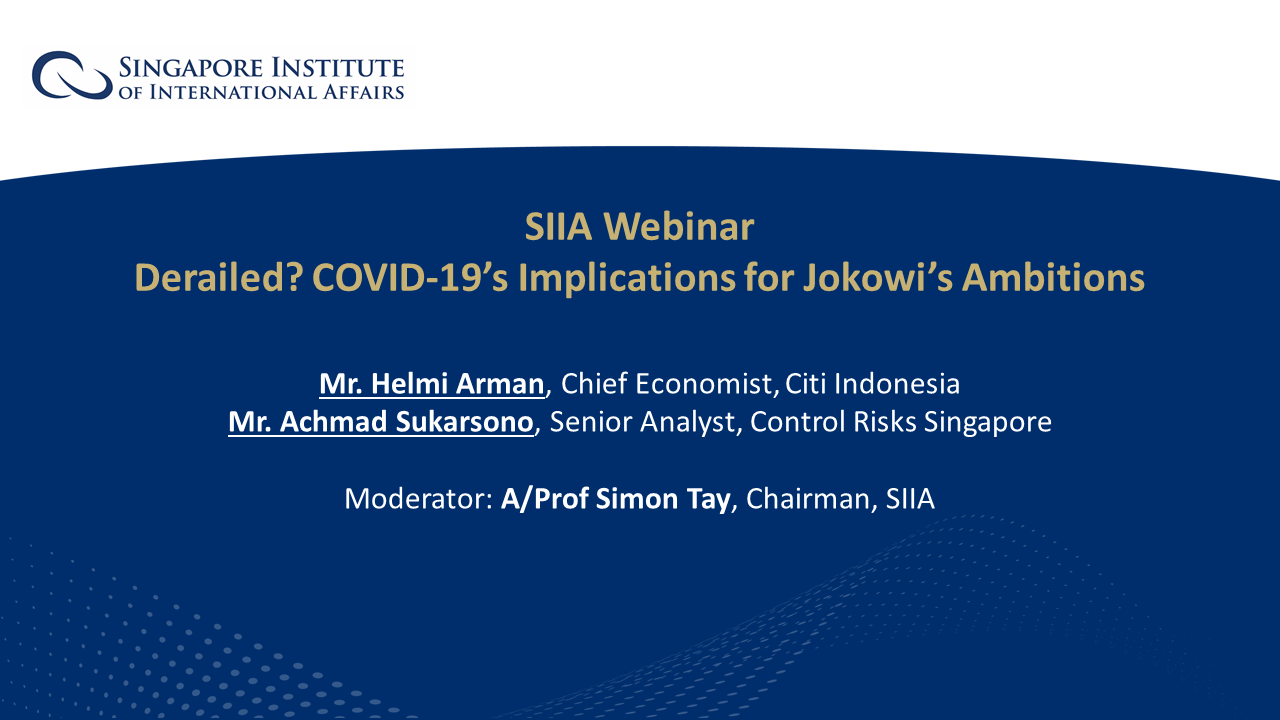Hopes were high for Indonesian President Joko Widodo “Jokowi” as he entered his second term in 2019. Jokowi aimed to make Indonesia more attractive to foreign investors through a series of “omnibus” bills, In addition, infrastructure drive and anti-corruption efforts from his first term were poised to be expanded upon. However, the COVID-19 outbreak put a damper on these initiatives, and it remains to be seen whether Jokowi will be able to fulfil them. The Singapore Institute of International Affairs (SIIA) held an online seminar on 28 May 2020 with Mr Helmi Arman, Director and Chief Economist for Indonesia at Citi, and Mr Achmad Sukarsono, Senior Analyst, Global Risks Analysis Asia-Pacific at Control Risks to discuss COVID-19’s implications for Indonesia’s economy and Jokowi’s policies.
The session was moderated by Associate Professor Simon Tay, Chairman of the SIIA. A recording of the session is available as a premium resource for our corporate partners, and a summary of the points discussed can be found below.

Derailed to a Large Extent
Indonesia’s opportunity to capture supply chains has not changed with the onset of COVID-19, as companies still seek to diversify away from China. What has changed, however, is the state of the Indonesian economy. With numerous sectors in distress, the government has launched five stimulus packages to reinforce social and financial sector stability, mindful that the collapse of either could deter foreign investors.
Nonetheless, COVID-19 has diminished the prospects for Jokowi’s three main ambitions. Unions gained political leverage as the economic fallout worsened, forcing Jokowi to shelve efforts to amend Indonesia’s labour laws, considered to be the “crown jewel” of the job creation omnibus bill. Key infrastructure projects such as the Jakarta-Bandung High Speed Rail and the new capital city were suspended or delayed, their financial future jeopardised as funds were reallocated to bail-out construction companies. Meanwhile governance reforms, already set back last year as Jokowi bowed to coalition members who sought to rein in the power of the Corruption Eradication Commission (KPK), appear unlikely in the near future.
Indonesia’s Political Future
Jokowi’s political position appears to be stable due to a lack of opposition, notwithstanding rising tensions between the central government and the provinces. The main conflict within his coalition is the question of when and how Indonesia should reopen, and Jokowi has had to strike a balance between the two. Ultimately, he is expected to adopt a more nationalistic approach to help local companies at the expense of foreign counterparts.
Is China the Answer?
The concerns of foreign investors would not be foremost in Jokowi’s mind in the coming months, but those that learn to align with his coalition’s objectives stand to benefit. One country that has learned to do this is China. Its investors have proved willing to invest in projects that western counterparts shun, and there are rumours of Chinese offers to invest in the new capital city. Such a scenario where China plays a larger role in the economic recoveries is expected to play out globally, not just in Indonesia.




